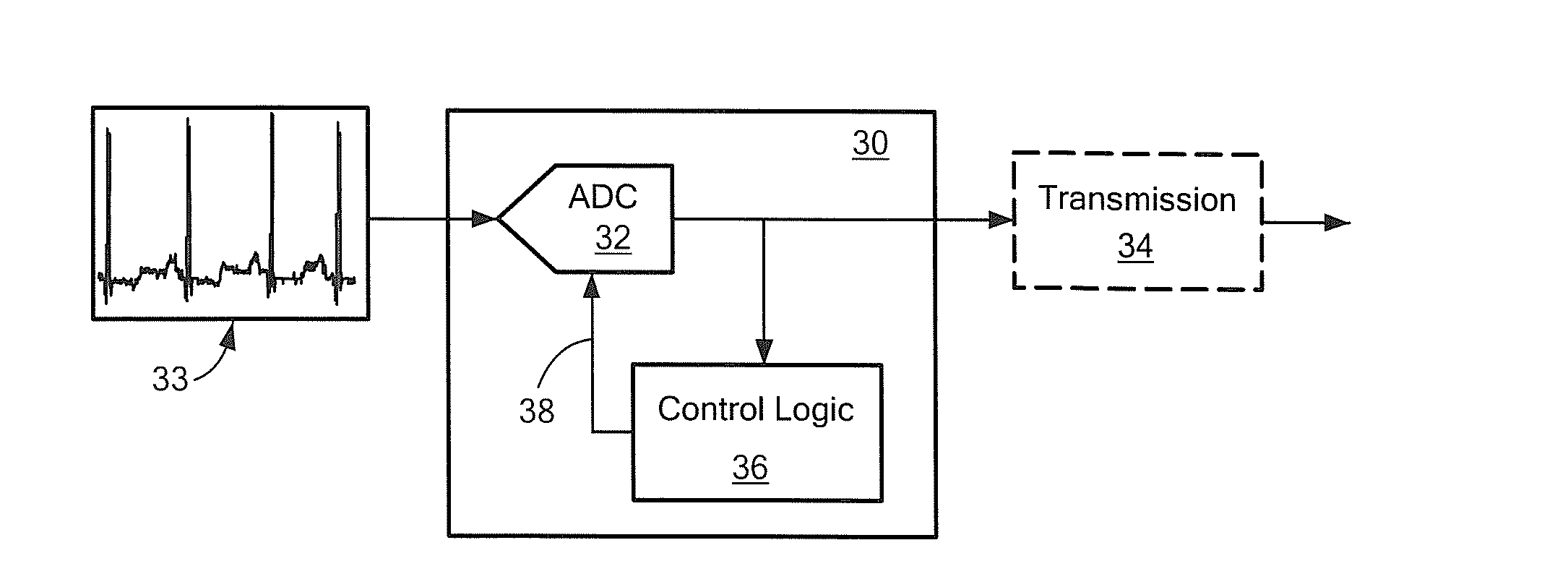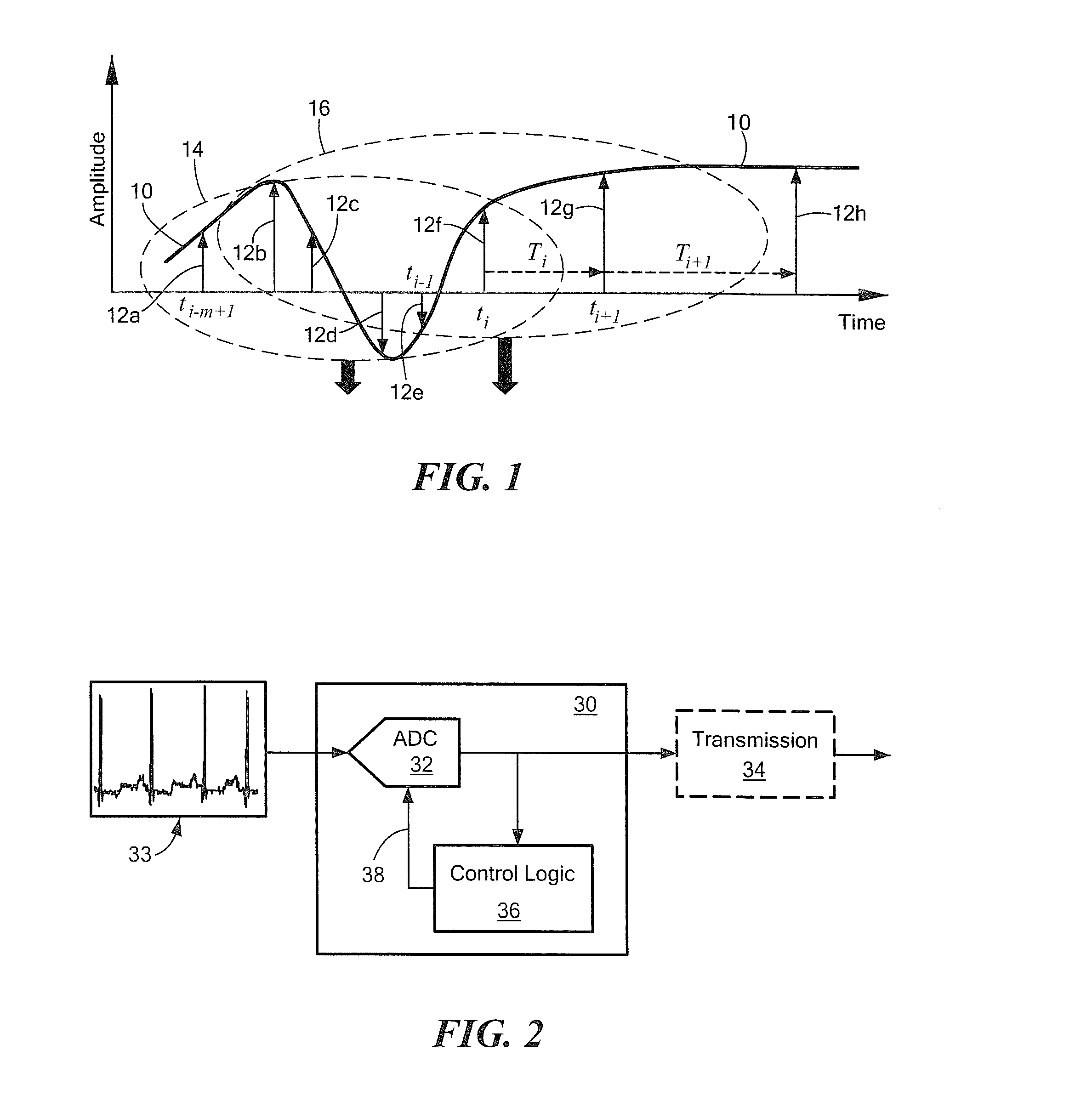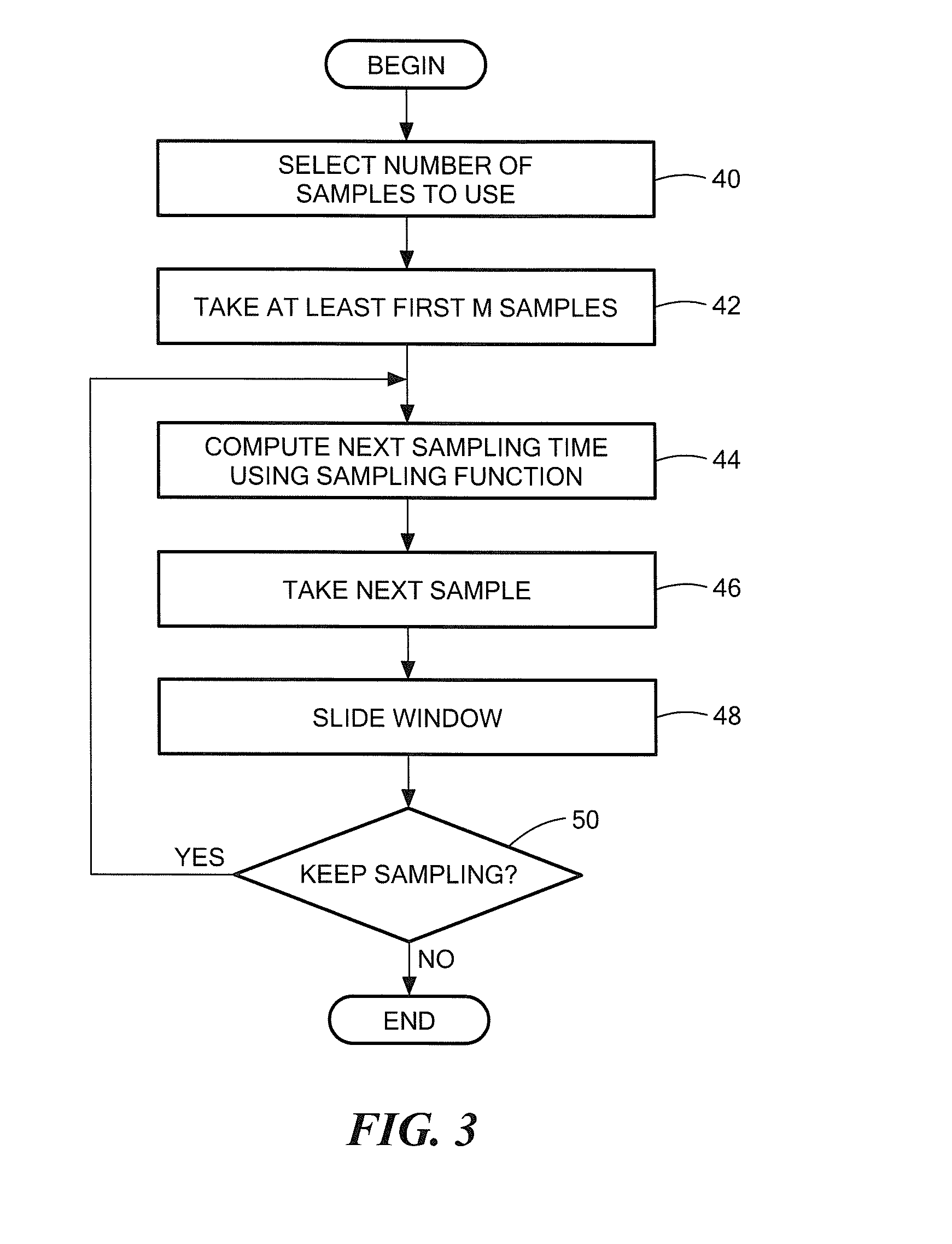Energy-Efficient Time-Stampless Adaptive Nonuniform Sampling
- Summary
- Abstract
- Description
- Claims
- Application Information
AI Technical Summary
Benefits of technology
Problems solved by technology
Method used
Image
Examples
Embodiment Construction
[0057]Before describing a system and process for a process for time-stampless adaptive nonuniform sampling (TANS), some introductory concepts and terminology are explained.
[0058]A deterministic signal is a signal which can be described by analytical expressions for all times (past, present, future). Thus, deterministic signals are predictable for arbitrary times and can be reproduced identically arbitrarily often.
[0059]A stochastic signal may be an analog or continuous parameter signals or may be made up of a plurality of discrete values (a so-called discrete stochastic signal) which is often represented as X(n) where n takes on a plurality of discrete values.
[0060]It should be appreciated that the systems and processes described herein for time-stampless adaptive nonuniform sampling can be applied to either deterministic or stochastic signals which are either continuous or discrete. Accordingly reference to or exemplary embodiments described herein which use continuous parameter si...
PUM
 Login to View More
Login to View More Abstract
Description
Claims
Application Information
 Login to View More
Login to View More - R&D
- Intellectual Property
- Life Sciences
- Materials
- Tech Scout
- Unparalleled Data Quality
- Higher Quality Content
- 60% Fewer Hallucinations
Browse by: Latest US Patents, China's latest patents, Technical Efficacy Thesaurus, Application Domain, Technology Topic, Popular Technical Reports.
© 2025 PatSnap. All rights reserved.Legal|Privacy policy|Modern Slavery Act Transparency Statement|Sitemap|About US| Contact US: help@patsnap.com



